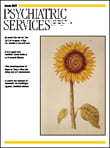Assessment of Addictive Behaviors, 2nd edition
Dennis Donovan and Alan Marlatt are two of the preeminent leaders in addictions. They have assembled others with similar credentials to contribute chapters to this book, which reflects the collective scholarship and clinical wisdom of the contributors. The book examines the biopsychosocial aspects of addictive disorders as they relate to relapse. Although this book focuses on assessment of patients, it is meant to be used with the authors' companion volume, Relapse Prevention: Maintenance Strategies in the Treatment of Addictive Behaviors .
Addiction is defined broadly, with a chapter devoted to each addiction. Thus there are chapters on alcohol, smoking, cocaine, amphetamines, opioids, and cannabis and a chapter on club drugs, hallucinogens, inhalants, and steroids. The book also includes chapters on eating disorders, gambling, sex offenses, and sexually risky behaviors. Each chapter details both a general overview of assessment and specific biopsychosocial aspects of assessment. For example, the chapter on alcohol problems describes screening methods for alcohol misuse, moves on to assessment for alcohol disorders, then takes up more specific assessment issues, such as psychological factors like readiness to change. Each chapter also contains sample assessment instruments and a comprehensive, exhaustive list of references.
The book starts with a terrific overview of relapse prevention by Dennis Donovan. He pays particular attention to describing the three domains of assessment of relapse risk: distal personal characteristics, intermediate background variables, and proximal precipitants. He underscores the notion that the occurrence of intermediate and background variables, and how they contribute to stress, makes it important to assess patients for coping skills. This chapter sets the stage for the following chapters. Notably, the second chapter is a valuable overview of assessment of addictions in ethnic-minority cultures. Most of the chapters also discuss assessment of comorbid psychiatric disorders and other co-occurring conditions—pertinent medical and neurological disorders, for example.
This book is a treasure that will be useful to anybody who treats patients with addictive disorders. It will likely be used less as a text read cover-to-cover and more as a reference tool.



